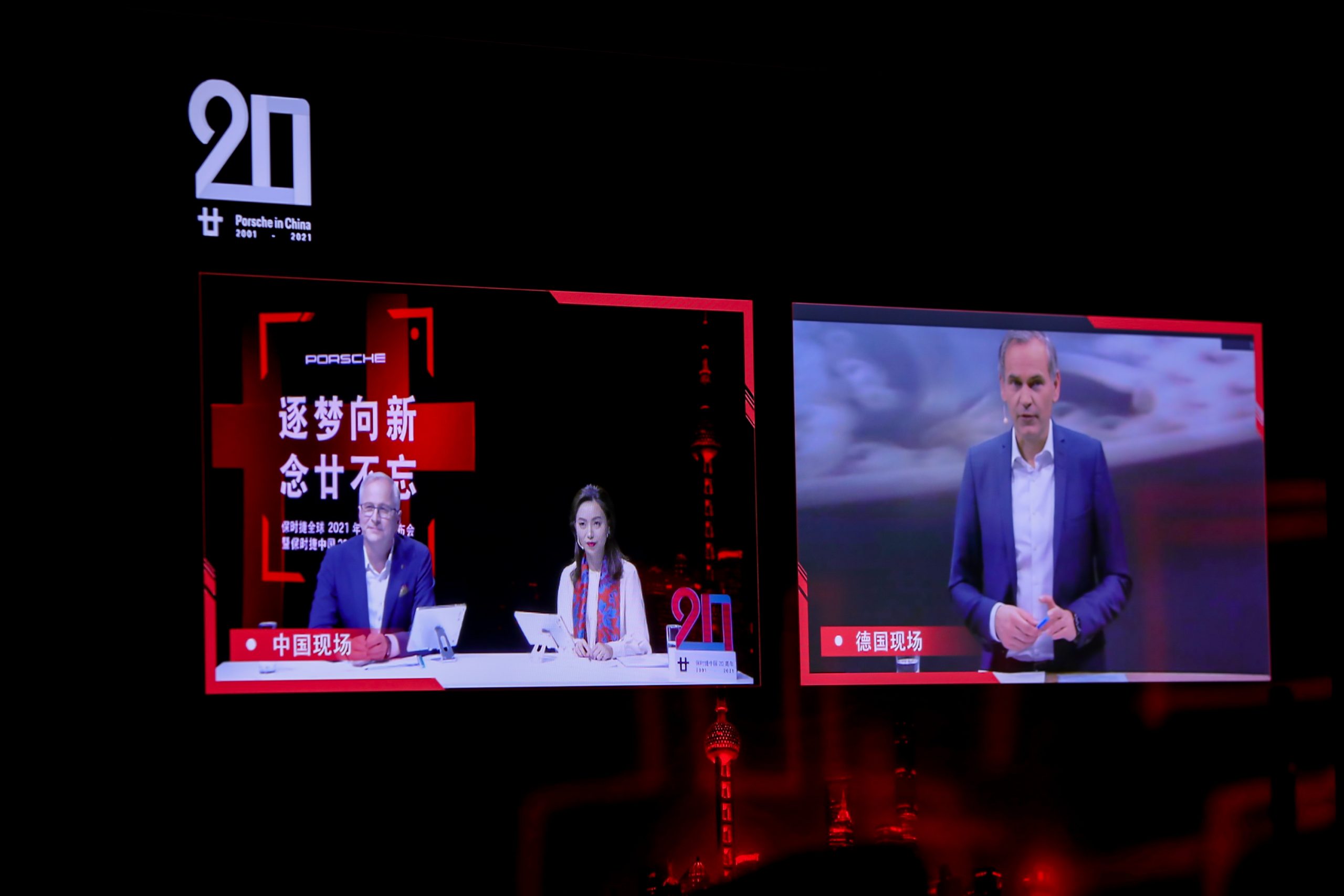On March 19, 2021, Porsche held its global 2021 annual press conference and the premiere of the 20th anniversary documentary of Porsche China online.
Minimal impact on 2020 financial data due to the pandemic
- In 2020, the global new car delivery volume was 272,000 units, a 3% decrease compared to the record-breaking year of 2019.
- Revenue in 2020 reached a historical high of 28.7 billion euros. Sales profit reached 4.2 billion euros, a decrease of 220 million euros compared to 2019, with a sales return rate of 14.6%.
- By 2025, Porsche will invest 15 billion euros in the development of future-oriented technologies, including sustainability, mobility, and digital transformation. At the same time, it will cumulatively reduce costs by 10 billion euros and then by 3 billion euros annually.
Brand and motorsport operations
- In recent years, Porsche successfully restructured Bentley. With the support of Porsche, the Bentley team achieved excellent results, with a performance improvement of 300 million euros from 2018 to 2019. Due to the implementation of a very stringent restructuring plan, Bentley’s productivity has increased by 50%.
- In the IMSA and WEC races in North America, Porsche won two GT group championships in the Petit Le Mans and the Sebring 12 Hours respectively. Additionally, Porsche has decided to develop LMDh group prototype cars for WEC and IMSA.
Successful initial venture into electrification
- In 2020, Taycan’s annual delivery volume reached 20,015 units, making it the most successful purely electric vehicle in the same class, and accounting for 7% of Porsche’s delivery volume, ranking first among Porsche’s purely electric vehicle models in the Volkswagen Group.
- In 2020, one-third of the new cars delivered by Porsche in Europe were hybrid or pure electric vehicles. This proportion was 17% globally.
- By 2025, Porsche expects that half of its sales will be hybrid or pure electric vehicles, and this figure will reach 80% by 2030.
- Ionity has expanded its fast charging facilities throughout Europe and the United States, with 330 charging stations already in operation. Porsche charging services have provided customers with over 150,000 charging points in 20 countries.
- There will be a performance-oriented hybrid version of the 911.
2030 strategy and outlook
Digital transformation
-
Six interconnected strategies – customers, products, sustainability, digitalization, organization, and transformation – will guide Porsche’s business operations and future direction.
-
Vision: The brand for dreamers; goal: to inspire customer enthusiasm with our products and services.
-
Digitalization has become a core component of Porsche’s strategy, with an annual investment of about 1 billion euros for digital transformation.
-
Customer: Porsche always puts customers in the center and inspires their enthusiasm.### Carbon neutrality
-
Avoid, reduce, and compensate emissions from product development to recycling, and achieve carbon neutrality by 2030.
-
Firmly promote the electrification transformation: Compared with other driving modes, the decisive advantage of electric vehicles is their high efficiency in reducing carbon dioxide emissions.
-
Supply chain emissions reduction
-
Produce batteries using renewable energy.
-
Make efforts to change the chemical performance of battery packs to reduce dependence on materials such as cobalt.
-
Gradually expand the use of renewable and recyclable materials.
-
Emissions reduction in production process
-
In 2019, the Taycan factory in Zuffenhausen became the first factory to achieve carbon neutrality in its production process.
-
In 2020, all factories in Zuffenhausen successfully achieved carbon neutrality.
-
In January 2021, both the Leipzig factory and the Weissach research and development center achieved carbon neutrality.
-
Emissions reduction during use phase
-
Porsche will focus on creating more green electricity for electric vehicles.
-
Investing 20 million euros in the research and development of synthetic fuels (eFuels) is also a measure of emissions reduction during use phase and a supplement to the electrification process.
-
Synthetic fuels make it possible for gasoline engines to achieve carbon neutrality almost completely.
Porsche Ventures
- Mainly invests in innovative business models related to customer experience, travel, and digital lifestyle themes.
- Currently, it has invested in 21 promising startups in Israel, the United States, Europe, and China, and has also invested in eight venture capital funds worldwide.
- Strengthen core business through investment and partnership. For example, Porsche has invested in Rimac, a supercar manufacturer and a high-tech component supplier, and currently holds 24% of the company’s shares.
This article is a translation by ChatGPT of a Chinese report from 42HOW. If you have any questions about it, please email bd@42how.com.
